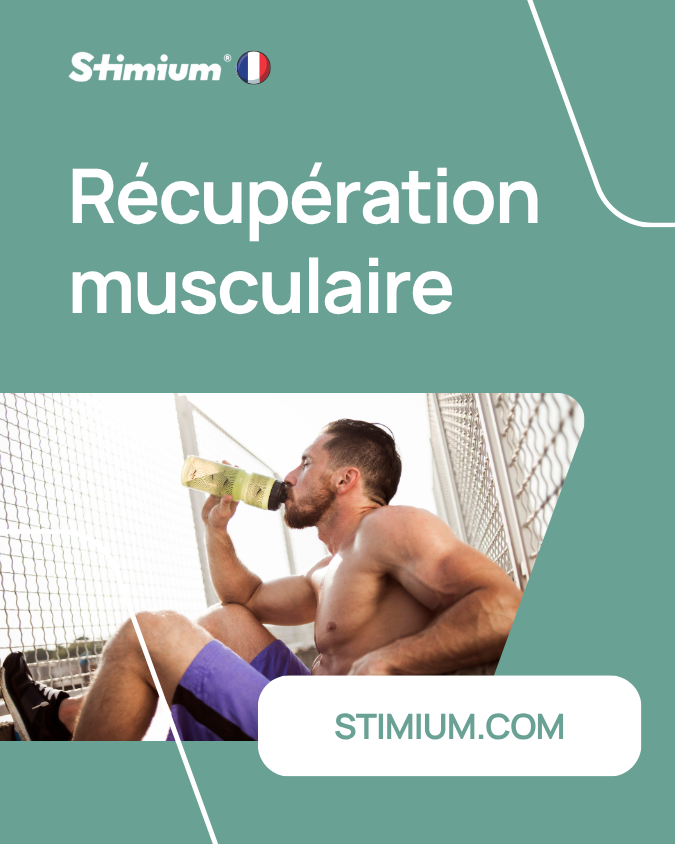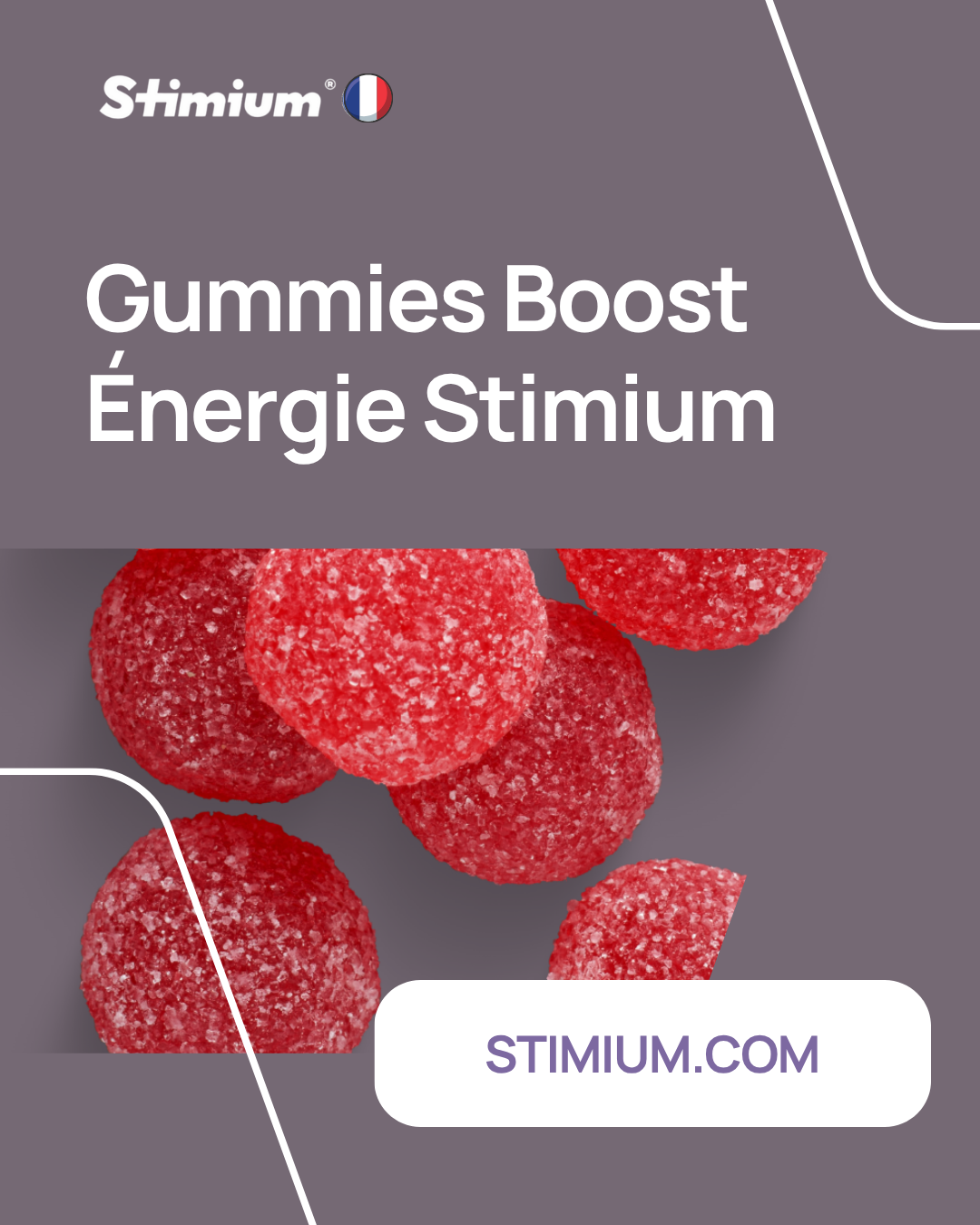CrossFit Protein: Recovery Guide
Introduction
CrossFit is an extremely demanding sport that places intense demands on your muscles and nervous system. To optimize your recovery after intense WODs, it's essential to understand the importance of protein in your diet.
As a CrossFit athlete, you experience high glycolytic exertion and significant metabolic stress, which can cause structural muscle damage. Protein plays a crucial role in repairing damaged muscle fibers, thus speeding up your recovery.
In this guide, we'll explore your specific protein needs and how protein supplements can help you achieve your goals. You'll also discover how STIMIUM products are designed to meet the demands of your discipline.
Key Points to Remember
- Protein is essential for muscle recovery after intense training.
- CrossFit requires a tailored recovery strategy to minimize muscle damage.
- Protein supplements can help speed recovery.
- STIMIUM products are designed to meet the specific needs of CrossFit athletes.
- Good recovery is key to improving your performance.
CrossFit Specific Protein Needs
For CrossFit athletes, understanding specific protein needs is crucial for effective recovery and optimal performance. CrossFit combines endurance, strength, and explosiveness efforts, significantly increasing your protein needs.
Why CrossFit Increases Protein Needs
When you train intensely, your muscles sustain significant damage. Protein is essential for repairing and rebuilding these muscles. The Amino Acid Oxidation Index (AAOI) method has shown that athletes need more protein than the sedentary population. In fact, studies show that protein needs can be as high as 1.4 to 1.8 g/kg/day to maintain a neutral nitrogen balance.
Ideal Amount of Protein According to Your Level
Your training level precisely determines your protein needs. For beginners (3-5 hours/week), a consumption of 1 to 1.4 g/kg/day is recommended. For intermediate athletes, it is recommended to consume between 1.4 and 1.7 g/kg/day. Finally, for elite athletes (15-25 hours/week), requirements can go up to 1.8-2.3 g/kg/day.
The Crucial Role of Protein in Post-WOD Recovery
When you finish an intense WOD, your body enters a critical recovery phase. This is when protein plays its most important role, not only in repairing muscles but also in supporting your immune system and preparing your body for the next workout.
Repair of Damaged Muscle Fibers
After an intense WOD, your muscle fibers suffer micro-damage. Protein provides essential amino acids that act as "building blocks" to rebuild and strengthen these damaged fibers, speeding up your recovery.
Injury Prevention and Performance Improvement
In addition to muscle repair, protein plays a crucial role in injury prevention and performance enhancement. By supporting your immune system and promoting rapid recovery, protein allows you to power through quality workouts.
How to Choose Your CrossFit Recovery Protein
The Different Types of Protein and Their Effectiveness
Whey protein remains the most popular nutritional supplement among CrossFit athletes. Whey concentrate offers good nutritional quality at an affordable price. Whey isolate, with its high protein content (90%+) and low lactose content, is ideal for rapid absorption post-WOD.
Quality Criteria to Prioritize
When choosing a protein powder, it's crucial to consider product quality. Look for proteins without artificial additives or sweeteners that can compromise your digestion and long-term health.
C-WHEY: The Complete Post-WOD Solution
An Optimized Composition for Effective Recovery
C-WHEY's formula is clean label, guaranteeing the absence of additives, artificial sweeteners, and preservatives. This allows for maximum protein absorption and respects your body.
When and How to Consume C-WHEY for Optimal Results
For optimal results, consume C-WHEY within 30 minutes of your WOD, mixed with 250ml of water or plant-based milk. This recovery window is crucial to maximize nutrient absorption.
Iso Carb Stimium: The Fast-Absorbing Premium Protein
Superior Quality and Accelerated Absorption
Iso Carb stands out for its premium formula that is almost lactose-free (less than 0.5%), making it ideal even for athletes with digestive sensitivities.
CrossFit Athlete Usage Protocol
To maximize the benefits of Iso Carb it is recommended to consume it immediately after training.
Optimize Your Recovery with RGN3 RELOAD
A Targeted Formula for Recovery
RGN3 RELOAD stands out for its balanced formula of electrolytes and essential nutrients. Unlike conventional protein products, RGN3 RELOAD focuses on restoring energy reserves and electrolyte balance.
Optimal Use Protocol
To maximize benefits, consume RGN3 RELOAD immediately after your most intense WODs, especially those combining high-intensity metabolic efforts.
FAQ
What are the amino acid needs for a CrossFit athlete?
CrossFit athletes require a high amount of amino acids to support muscle mass and recovery. It is recommended to consume between 1.6 and 2.2 grams of protein per kilogram of body weight per day.
When is the best time to consume protein after a workout?
It is recommended to consume protein within 30 to 60 minutes after training to maximize recovery and muscle growth.
What are the most effective dietary supplements for recovery?
Supplements such as protein powder, branched-chain amino acids (BCAAs), and carbohydrates can help improve recovery and performance.
How do I choose the right protein for my needs?
It is important to choose a high-quality protein, rich in essential amino acids, and tailored to your specific needs based on your training level and goals.
Can protein help prevent injuries?
Yes, adequate protein consumption can help repair damaged muscle fibers and prevent injuries, thus improving your overall performance.
What is the impact of carbohydrates on recovery?
Carbohydrates play a crucial role in recovery by replenishing muscle glycogen stores, allowing for better recovery and optimal performance.






